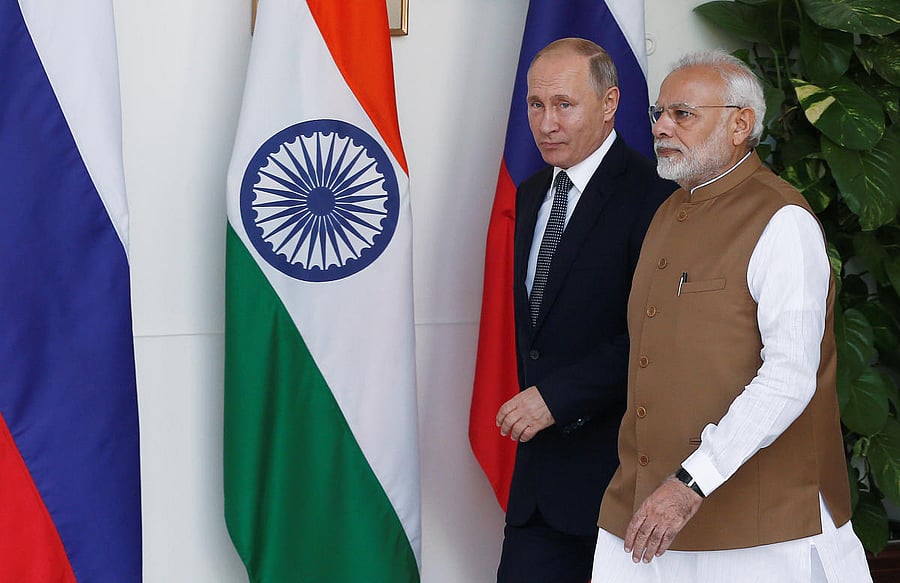
India and Russia can draw satisfaction from the outcome of the 19th annual summit in New Delhi. During President Vladimir Putin’s visit to India, the two sides signed nine agreements covering the fields of defence, space, nuclear energy and railways. Foremost among these is India’s $5 billion purchase of the Russian S-400 Triumf air defence system. The deal is significant. The long-range anti-aircraft and anti-missile missile system — claimed to have a range of 400 km — would play a vital role against Pakistani and Chinese threats. But also, with the signing of the deal, India has signalled to the United States that in matters involving its national security, India will make its own decisions and will not be deterred by other countries, including friends like America. The US has sanctioned Russia and Iran, among other countries, and countries that do business with them, too, become targets of its Countering America’s Adversaries through Sanctions Act (CAATSA). With its proposed S-400 buy making India vulnerable to those sanctions, there was considerable uncertainty whether the deal would be done. By signing the agreement, India has clarified that in strategic matters, it will not take orders from anyone.
The just-concluded summit also saw Russia agree “in-principle” to sell four Krivak-class frigates to India. Two of these frigates are to be built in India while the other two will be delivered in ready-to-induct condition. Finally, the two countries will boost co-operation in outer space. If over three decades ago, it was in a Soviet Soyuz space capsule and on a Soviet rocket that Rakesh Sharma became the first Indian to travel to orbital space, now the Russian space agency has agreed to support India’s ambitious mission to launch from Indian soil astronauts into space on an Isro rocket and crew module.
India-Russian cooperation is strong but consists largely of defence transactions and military deals. Non-military trade, while growing, is not as strong as it should be between two countries that have been close allies for decades. For the bilateral relationship to advance substantially, Delhi and Moscow need to support each other, especially in times of crisis. India supported Russia during the Crimean crisis; it was the first major country to recognise Crimea’s integration into Russia and refrained from supporting western sanctions against Russia. In contrast, Moscow was silent during the Doklam crisis. Its position in Afghanistan is now closer to that of Pakistan than India’s. By purchasing Russia’s S-400 missile defence system, India has risked its ties with the US. New Delhi must demand that Moscow reciprocate, especially on issues of concern to India’s security.
